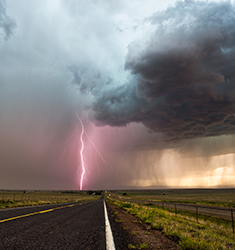Program Description
If you enjoy computing, mathematics, experiment design, or just looking up at the night sky, and want to contribute to the future scientific progress of humankind, the exciting field of astronomy may offer some appealing career options. For millennia, the study of our universe has fascinated the general public and captured the imagination of scientists. Modern astronomical and astrophysical research retains that allure while also bringing cutting-edge tools to bear on some of the most fundamental questions: "How does the universe work? How do galaxies and stars form? How did we get here?" The University of Utah’s astronomy group in the Department of Physics and Astronomy has research expertise spanning cosmology to planet formation. They study the nature of dark matter, the large-scale structure and expansion of the universe, galaxy clusters, the demographics of massive black holes, the astrophysics of compact objects, our own Milky Way and nearby galaxies, and the formation of solar systems. Faculty play leadership roles in large ongoing and upcoming survey projects (such as SDSS and DESI) and use both telescopes and supercomputers in their research. Flex your imagination, develop your critical and abstract thinking skills, and boost your understanding of science and technology with the U’s minor in Astronomy or with an Astronomy & Astrophysics emphasis in the Physics BA/BS.
Career Opportunities
Either an Astronomy minor (coupled with a Physics or related major) or an Astronomy & Astrophysics emphasis as a Physics major will prepare students for a variety of careers. In addition to coursework, students can join academic clubs (like the AstronomUrs outreach team), participate in undergraduate research projects, and attend astronomy-related seminars. Modern astronomy is a computational and "big data" field, and a degree in astronomy can be excellent preparation for a career in data science or programming. In addition to pursuing graduate work in astronomy and astrophysics, students can find employment in museums, research facilities, community colleges, the government (local, state, or national), observatories, or science communication platforms.

 Astronomy
Astronomy


